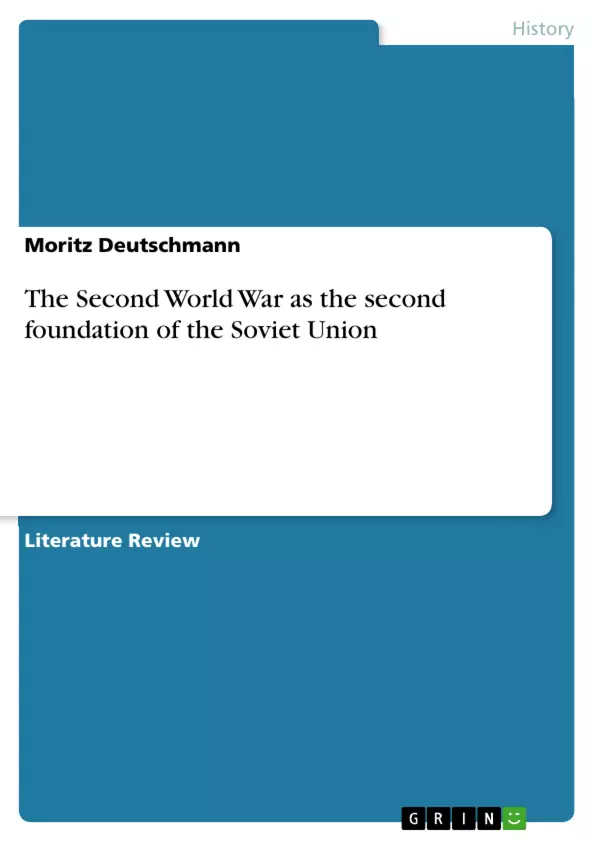The discussion on Soviet war memorials in Eastern Europe has shown how differently Europeans from the West, the East, and Russia still commemorate World War II. This essay gives an overview of the most important works on the Russian war memory, from the almost complete silence on the war in late Stalinism and the war cult of the Brezhniev era to the "uncovering of blank spots" during the Perestroika. The essay points out that for many of the soldiers, the war was a "sovietizing" experience; paradoxically, however, it also encouraged resistance to the Stalinist dictatorship. The essay does not only help to understand how the war could be understood as a "second foundation" of the Soviet Union, but also sheds light on the general relation between power and memory in Soviet history.
Inhaltsverzeichnis (Table of Contents)
- Introduction
- The Initial Silence
- The Expected Armaggedon
- The Memory Cult
- Heroes and Victims
- No More Blank Spots: the End of the Soviet Union
- War Memory and Post-War Soviet Society
Zielsetzung und Themenschwerpunkte (Objectives and Key Themes)
This paper examines the relationship between the Soviet collective memory of World War II and social change in postwar Soviet society. It explores how the memory of the war shaped Soviet culture, politics, and societal structures, as well as how the official narrative of the "Great Patriotic War" influenced the state's relationship with its citizens.
- The impact of the war on Soviet society and its citizens
- The evolution of the Soviet War memory and its political significance
- The relationship between the state and its citizens in the postwar era
- The role of the War in shaping Soviet social structures and cultural norms
- The relationship between the War and the development of the Soviet empire
Zusammenfassung der Kapitel (Chapter Summaries)
- Introduction: This chapter introduces the paper's theme and argues for the significance of understanding the relationship between the Soviet War memory and social change in postwar Soviet society. It also discusses the different meanings of the iconic Soviet slogan "No one will forget, and nothing will be forgotten," which encapsulated the complex relationship between official memory and historical reality.
- The Initial Silence: This chapter examines the initial period following the war, highlighting the conflicting feelings of Soviet soldiers returning home. It explores the impact of the war on the individual lives of citizens, the relationship between the Soviet state and its citizens, and the silence surrounding the war in the early postwar years.
Schlüsselwörter (Keywords)
The paper focuses on the key themes of Soviet War memory, post-war society, the "Great Patriotic War," the relationship between the state and its citizens, social change, and the impact of the war on Soviet culture, politics, and societal structures.
Frequently Asked Questions
What is the "Great Patriotic War" in the Soviet context?
It is the term used in the Soviet Union and Russia to describe the conflict on the Eastern Front of World War II against Nazi Germany.
Why is the war called the "second foundation" of the Soviet Union?
Because the collective experience and victory in the war reshaped Soviet identity, culture, and social structures, providing a new basis for state legitimacy.
How did war memory change during the Brezhnev era?
The Brezhnev era saw the development of a massive "memory cult" with monuments and celebrations, turning the war into a central pillar of state ideology.
What were the "blank spots" in Soviet history?
These were censored or suppressed historical facts that were only revealed and discussed during the Perestroika period.
How did the war affect the relationship between the state and its citizens?
While the war was a "sovietizing" experience for many, it paradoxically also fostered individual resilience and resistance to Stalinist dictatorship.
- Arbeit zitieren
- Moritz Deutschmann (Autor:in), 2007, The Second World War as the second foundation of the Soviet Union, München, GRIN Verlag, https://www.grin.com/document/77953



